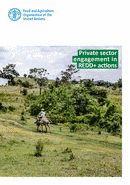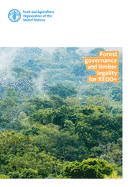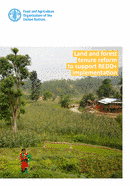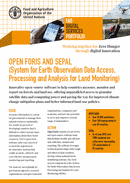Publicaciones
Given its ability to innovate, rapidly adapt to changing conditions and leverage capital for new market opportunities, the private sector can play a key role in helping countries meet the Sustainable Development Goals and their climate commitments, such as Nationally Determined Contributions (NDCs) and REDD+.
The successful reduction of emissions from deforestation and forest degradation requires forest governance to be efficient, effective and equitable. The concept of forest governance has evolved to engage public and private actors at many levels to make and enforce decisions that are clear, transparent, just, and lead to the sustainability...
Land and forest tenure systems greatly influence a country’s ability to reduce deforestation and forest degradation. Clear and legitimate tenure rights over forests can provide an incentive to manage forests sustainably and simultaneously reduce deforestation and forest degradation. In fact, communities and stakeholders with secure tenure rights have a strong...
This flyer presents Innovative open-source software to help countries measure, monitor and report on forests and land use, offering unparalleled access to granular
satellite data and computing power and paving the way for improved climate change mitigation plans and better informed land-use policies.
FAO, in collaboration with Djibouti’s Ministry of Agriculture, Water, Fishery, Livestock and Marine Resources and Ministry of Housing, Urban Planning and Environment, and the United Nations High Commissioner for Refugees, conducted the study presented in this report to assess the use of Prosopis woody biomass as a source of energy...





